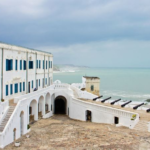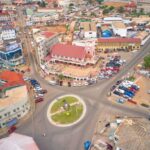Subjects of indigenous languages are very critical on the African continent due to the multi-lingual nature on the continent. It becomes more challenging when a nation decides to select a particular indigenous language as its national language. Many African states have opted foreign languages as their national language because of the controversies that accompanies the selection of an indigenous language as an official language.
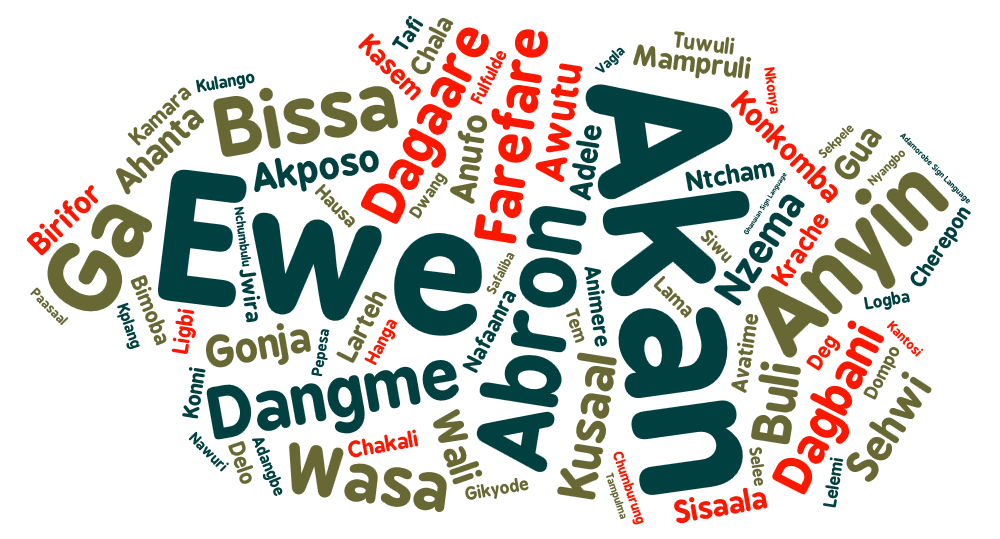
Akan Language
The Akan language is the most widely spoken indigenous language in Ghana. It’s a language spoken by the Akan ethnic group and comprises of three main mutually intelligible dialects: Asante Twi, Akwapim Twi and Fante. Asante Twi is widely used since the Asante people make up a greater part of the Akan State but generally, the Akan language is the most spoken local language with over 40% of the Ghanaian population speaking the Akan language as their mother tongue and over 80% of the population speaking the language as their mother tongue and secondary language.
The Akan language traces its origin to the Kwa group of the Niger-Congo language family in the 13th Century. It has some unique linguistic features like tone, vowel harmony and nasalization. A similar dialect of the Akan language is also spoken in South America, notably Suriname and Jamaica. The language came to these places through the slave trade.

Through the migration of the Akan ethnic group to the present Ghana, they adopted the language as part of their culture. Currently, the Akan language is officially recognized as a subject, it’s being taught at basic and secondary levels of education and also studied at the university as a Bachelor or Master’s program. The Akan language is notably spoken by the people in the Ashanti, Western, Western-North, Eastern, Ahafo, Bono, Brong-Ahafo and Oti regions of Ghana.
Ga-Dangme
Ga and Dangme are spoken in a geographically continuous area of southern Ghana, stretching about eighty miles along the coast west of the Volta River. Accra, the capital of the country, is traditionally a Ga town, but in the cosmopolitan population of the modern city the Gas are outnumbered. As the traditional language of the national capital, Ga and not Dangme is one of the Ghanaian languages officially used in publication, broadcasting and elementary education, but Dangme is the mother tongue of a larger number of people.

The Ga and Dangme languages are meticulously related and have sometimes been considered as a single language. There are numerous resemblances in the basic vocabulary. There are also countless words that are diverse, and grammatical variances, predominantly in the verb phrase. Where they differ, Dangme is regularly nearer to the original Proto-Ga–Dangme than Ga. Just like the Akan language, the Ga and Dangme languages trace their origin to the Kwa group of the Niger-Congo language family.
Ewe Language
Not only spoken in Ghana, the Ewe language is regarded as one of the most spoken dialect in the West African sub-region especially, in regions such as southern Togo and southern Benin. The Ewe dialect is a language of the Kwa branch of the Niger-Congo family which arguably traces its origin to Oyo, in western Nigeria, which was a major Yoruba kingdom.
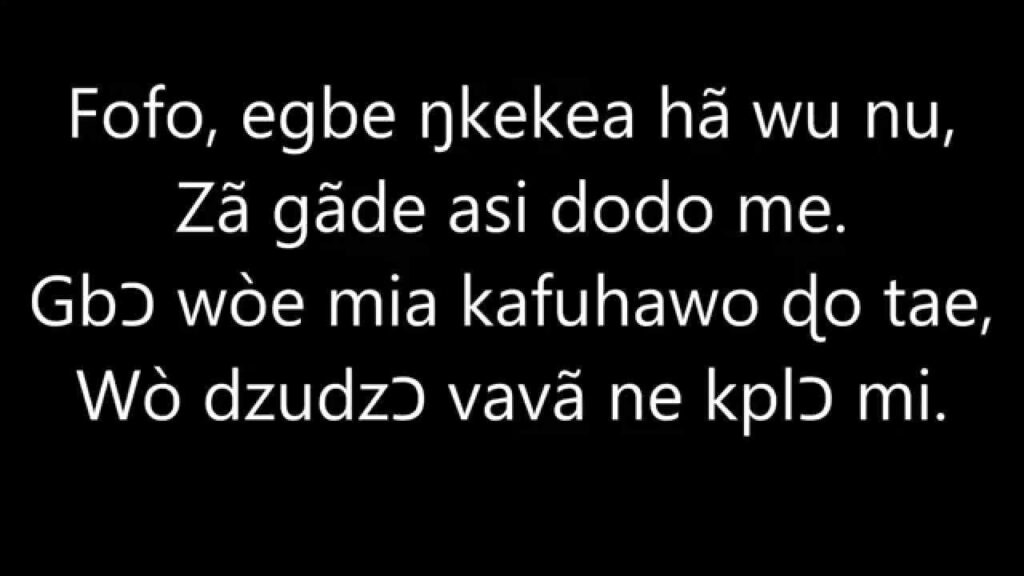
Here in Ghana, the Ewe language is widely spoken in the southeastern part of the country known as the Volta Region. Over 15% of the Ghanaian community are known for speaking the Ewe language due to that the language is one of the Ghanaian languages officially used in publication, broadcasting and elementary education.
Dagbani Language
A language mainly spoken among acephalous tribes overseen by the King of Dagbon, Ya-Na in the northern part of Ghana. The Dagbani language is a member of the Gur branch of Niger-Congo languages which is closely related to, and mutually intelligible with Mampelle language also spoken in Northern Region and Mossi, which is spoken mainly in Burkina-Faso. Dagbani is also known as Dagbamba, Dagbane and Dagomba.
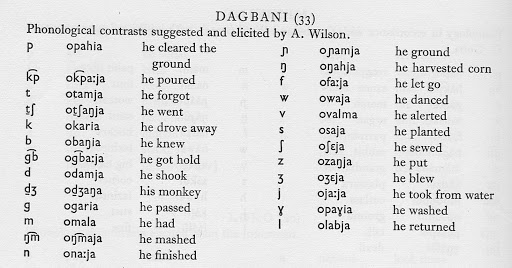
With over 15% of Ghana’s population speaking the Dagbani language, the dialect is also similar to other languages of the same subgroup spoken in the Northern Region, the Dagaare and Waala languages, spoken in Upper West Region, and the Frafra language, spoken in Upper East Region of Ghana. The dialects are, however, mutually intelligible, and mainly consist of different root vowels in some lexemes, and different forms or pronunciations of some nouns, particularly those referring to local flora. Just like the other major languages, the Dagbani language is one of the Ghanaian languages officially used in publication, broadcasting and elementary education.
Hausa
The Hausa language is regarded as the western branch of the Chadic language superfamily within the Afro-Asiatic language phylum with over 50million people speaking the dialect as either their mother tongue or secondary language across a broad band of countries of West Africa; including Benin, Burkina Faso, Cameroon, Central African Republic, Chad, Congo, Eritrea, Ghana, Niger, Sudan, and Togo. Tracing its origin to the 14th Century, the Seven True Hausa States or Hausa Bakwai (Biram, Daura, Gobir, Kano, Katsina, Rano and Zaria) are known as custodians of the language. The home territories of the Hausa language lie on both sides of the border between Niger, where about one-half of the population speaks Hausa as their mother language as well as one-fifth of the population in Nigeria.
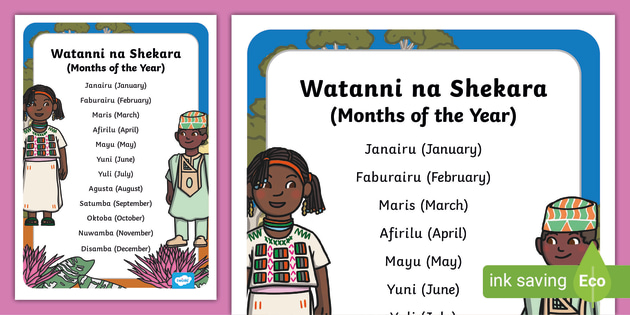
The Ghanaian Hausa language is a distinct western native Hausa dialect-bloc with adequate linguistic and media resources available. Ghana is the westernmost area in which the Hausa language is a major lingua-franca among Sahelian/Muslim West Africans. The Hausa language is dominantly spoken by Muslims. Hausa has a rich vocabulary due to numerous borrowings from other languages. One of the major sources of borrowing is Arabic that has contributed a large number of words dealing with the Islamic Religion. The language has a complex phonological system characterized by tones in addition to large inventories of vowels and consonants. The Hausa language is one of the Ghanaian languages officially used in publication and broadcasting.
